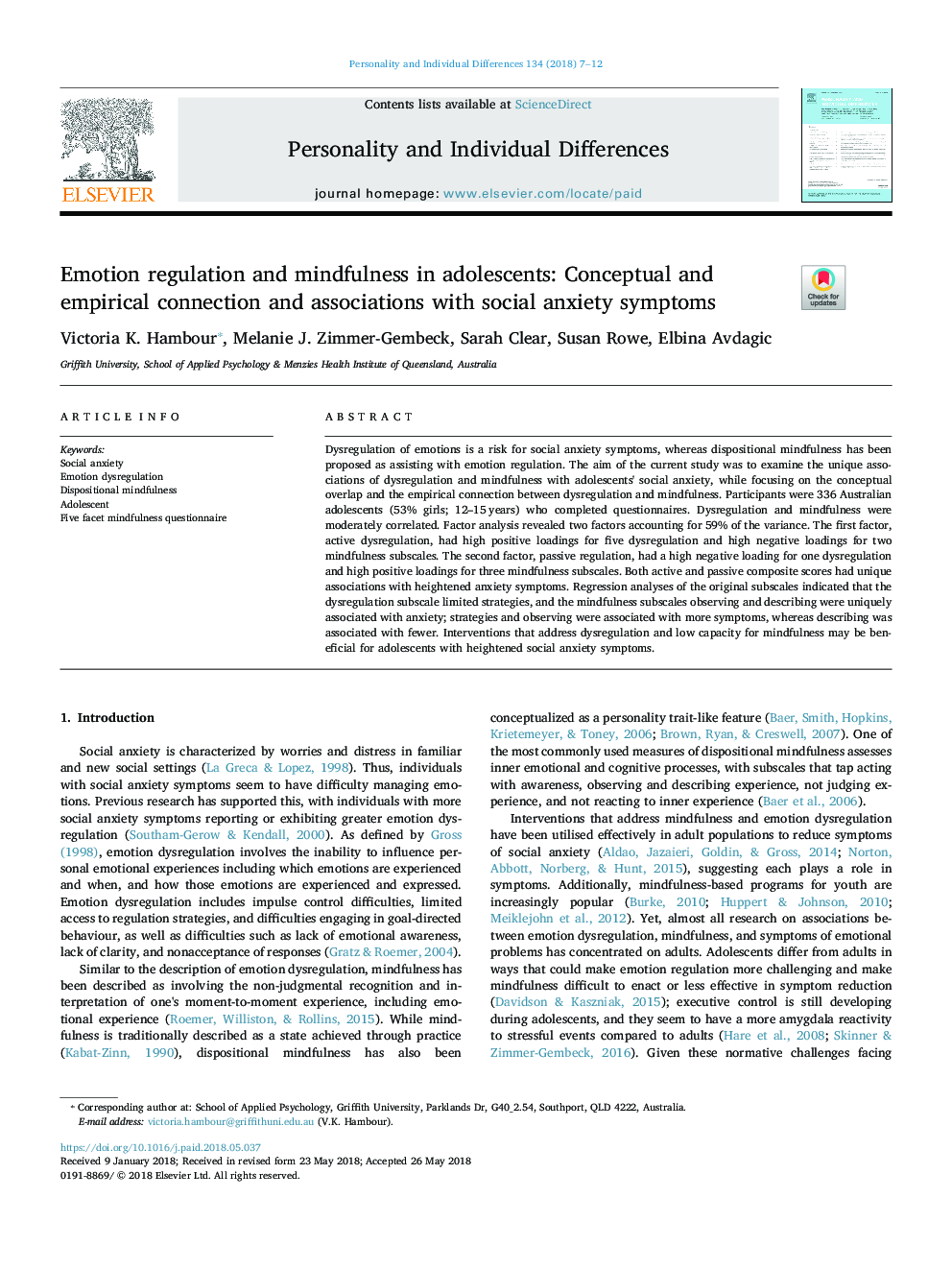| Article ID | Journal | Published Year | Pages | File Type |
|---|---|---|---|---|
| 7248361 | Personality and Individual Differences | 2018 | 6 Pages |
Abstract
Dysregulation of emotions is a risk for social anxiety symptoms, whereas dispositional mindfulness has been proposed as assisting with emotion regulation. The aim of the current study was to examine the unique associations of dysregulation and mindfulness with adolescents' social anxiety, while focusing on the conceptual overlap and the empirical connection between dysregulation and mindfulness. Participants were 336 Australian adolescents (53% girls; 12-15â¯years) who completed questionnaires. Dysregulation and mindfulness were moderately correlated. Factor analysis revealed two factors accounting for 59% of the variance. The first factor, active dysregulation, had high positive loadings for five dysregulation and high negative loadings for two mindfulness subscales. The second factor, passive regulation, had a high negative loading for one dysregulation and high positive loadings for three mindfulness subscales. Both active and passive composite scores had unique associations with heightened anxiety symptoms. Regression analyses of the original subscales indicated that the dysregulation subscale limited strategies, and the mindfulness subscales observing and describing were uniquely associated with anxiety; strategies and observing were associated with more symptoms, whereas describing was associated with fewer. Interventions that address dysregulation and low capacity for mindfulness may be beneficial for adolescents with heightened social anxiety symptoms.
Keywords
Related Topics
Life Sciences
Neuroscience
Behavioral Neuroscience
Authors
Victoria K. Hambour, Melanie J. Zimmer-Gembeck, Sarah Clear, Susan Rowe, Elbina Avdagic,
